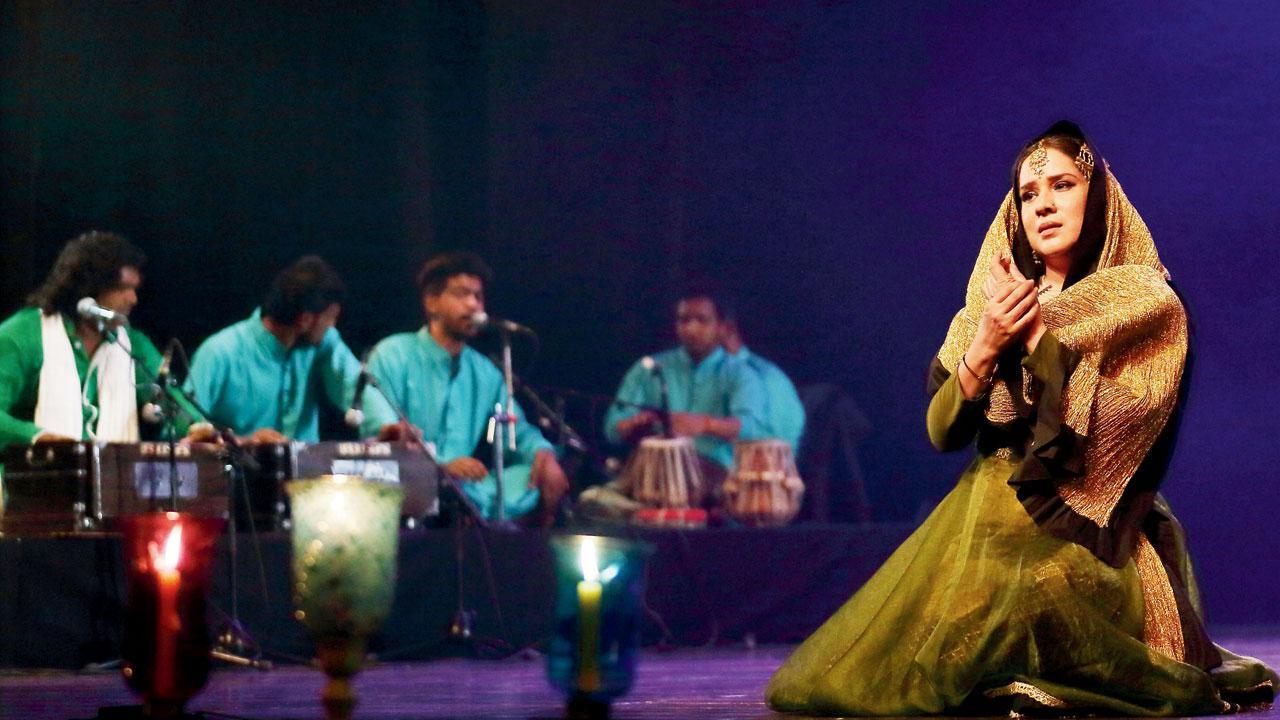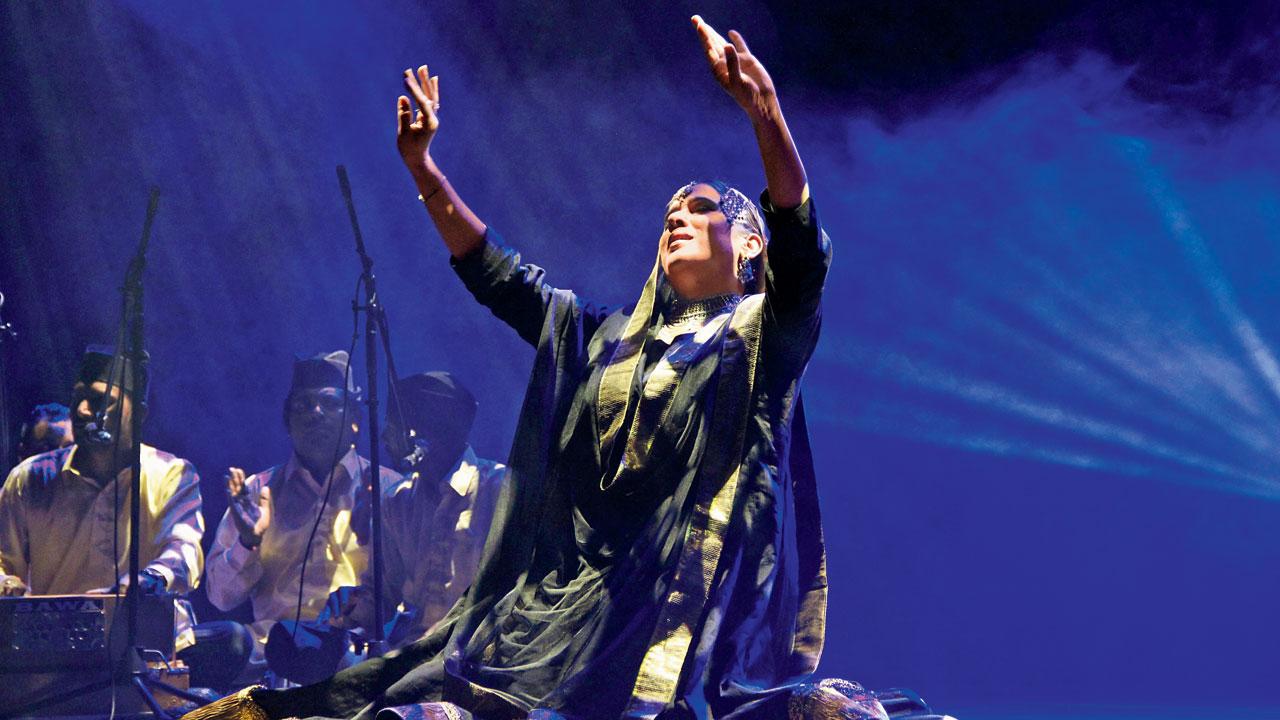A unique kathak performance brings alive the folk poems of Baba Bulleh Shah and the Subcontinent’s multicultural spirituality

Manjari Chaturvedi during a performance in Delhi in December 2023. Pics Courtesy/Monica Dawar
From Faiz Ahmed Faiz, down to Sahir and even, Ranbir Kapoor, a common thread of Punjabi folklore emerges. Like the pride of Rabindranath Tagore to a native Bengali, the poems and songs of the 17th century poet mystic, Baba Bulleh Shah, have been passed down through oral tradition across the plains of Punjab. These have slowly filtered down into pop culture through Nusrat Fateh Ali Khan’s qawwalis, Madhuri Dixit dancing to ‘Mera piya ghar aaya’, or Shah Rukh Khan’s iconic moment atop a train in Ooty singing ‘Chaiyya chaiyya’.
ADVERTISEMENT
Manjari Chaturvedi knows this well. “We are talking about an evolution of 700 years of oral tradition here,” the danseuse from Lucknow Gharana tells us, referencing the Madhuri Dixit number. The performance O’ Bullayah! at The Royal Opera House on Saturday is Chaturvedi’s tribute to the Punjabi sufi saint, and part of her ongoing research, The 22 Khwaja Project. Since 2010, she has performed concerts in tribute to Hazrat Nizamuddin Auliya, Chiragh-e-Dehli, Hazrat Bedam Warsi, and Shah Turab Ali Qalandar. “This is our fifth saint, and there is still a long way to go to 22,” she chuckles.

Chaturvedi performs to music sung by traditional qawwals
Her tryst with Sufi poetry across the Indian Subcontinent began even before the 1990s. “Indian classical dance forms are all about bhakti. These are in two categories — sagun (form) and nirgun (formless). The former involves tributes to gods such as Krishna, Shiva, Rama through performance narratives. The latter, incidentally, is more common in the classical music tradition, but not dance,” she explains.
This led her to design the Sufi Kathak, a unique form that blends the traditions of Kathak with Sufi mysticism and movement. O’ Bullayah! sheds light on one of the more radical and interesting personalities in Sufism, she remarks. “Most people are familiar with the Persian mystic Rumi, but are unaware of this Punjabi poet who continues to be referenced across pop culture,” she remarks. Over two decades, she travelled across villages and conversed with folk musicians about these poems often passed down through oral tradition.
Dance is the right way to celebrate Baba Bulleh Shah though. “He remains a rare saint in the Subcontinent who danced,” Chaturvedi informs us. “His poems are also written from the feminine perspective. He became a voice for women, and changed the narrative in that century,” she points out. For Chaturvedi, these poems were also modern in their take on social evils such as caste, religious bigotry and orthodoxy. “For instance, his poem written in Punjabi, Othe amlan de hone navede warns against caste discrimination. This focus on social justice and truth makes them relatable even today,” she states.
Her performance includes ‘Mera piya ghar aaya’ and ‘Tere ishq nachaaya thaiyya thaiyya’ and the esoteric ‘Othe amlan de hone…’. They are performed by traditional qawwals from Punjab, and are woven together with contextual explanations from her research. There is also a video of the annual Sufi dance ritual performed at the tomb of Baba Bulleh Shah in Kasur, Pakistan. The final piece, Chaturvedi reveals, will see her perform with open hair. This is rare in Indian classical dance forms, since it represents abandon. “In Sufism, it implies relinquishing of control. That is how he [Baba Bulleh Shah] would dance. It was only apt to include it as the final piece,” she explains.
On: February 3; 7 pm
At: Royal Opera House, Charni Road East. Log on to insider.in
Cost: Rs 499 onwards
 Subscribe today by clicking the link and stay updated with the latest news!" Click here!
Subscribe today by clicking the link and stay updated with the latest news!" Click here!







